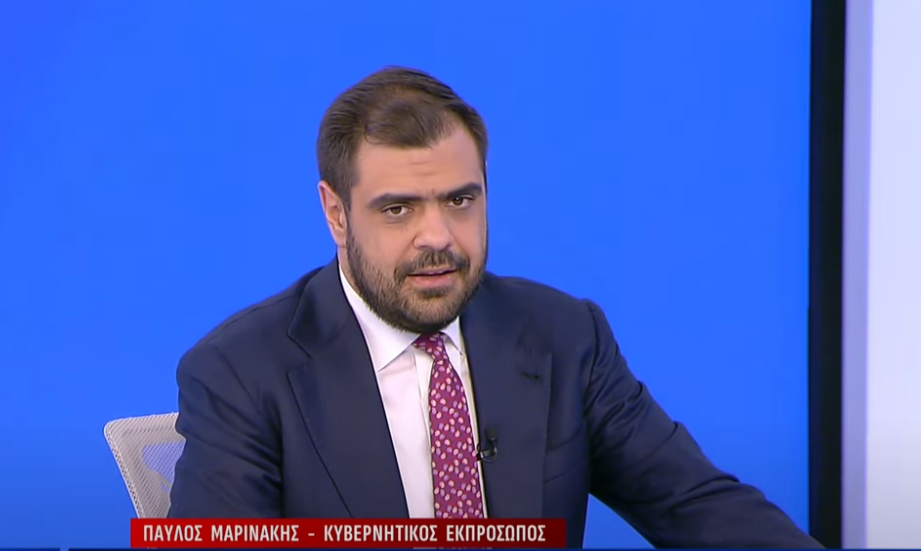Government spokesperson: Suspension for students upon arrest, irrevocable expulsion if convicted

Marinakis added that a key law passed in 2021 needs to be updated to simplify its implementation – particularly the disciplinary measures of suspending or expelling students – without involving complex bureaucratic procedures. Speaking in an interview with ACTION24, he said:
“Anyone involved in something similar to what happened at the Law School should know that if they’re arrested, their student status will be suspended immediately.”
He clarified that the government doesn’t plan to further toughen penalties, admitting, “We’ve already made them strict enough.” Instead, the aim now is to close remaining loopholes – much like they’ve done in the context of football stadiums. On the disciplinary side, he stressed that “not all offences are the same,” but reiterated that cases involving serious damage will trigger suspension at the point of arrest and permanent expulsion upon a final court ruling.
Marinakis proudly claimed that, for the first time since the end of the military dictatorship, there are currently no active student occupations of university buildings. His mention of this, coming immediately after threats of expulsion for students involved in “serious damage,” struck a particularly pointed note.
He also repeated the government’s talking points on security measures, boasting about dozens of police operations that have cleared occupied spaces and seized what he described as “weapons” – a label often used for the political material or equipment of left-wing student groups. He stated that changes to the legal framework in 2019 and 2021 now allow for immediate police intervention. However, while highlighting funds for security, he made no mention of the chronic underfunding of academic programmes and university staff.
According to Marinakis, there are now three types of penalties for what he called “unlawful behaviour”:
- Criminal – through tougher penalties
- Disciplinary – including suspension or expulsion of student status
- Civil – with individuals held financially liable for damages
He also took aim at opposition parties, accusing them of either abstaining or voting against legislation the government considers essential.
“In Greek universities, there used to be debate over whether it was self-evident that police should intervene when an illegal act occurs – whether called by the rector or by a citizen. That changed in 2019. Until the Mitsotakis government, that wasn’t a given,” he concluded, referring to the broader context of policing on university campuses.
It’s worth noting that just two days prior, PM Kyriakos Mitsotakis also weighed in on the issue, once again targeting politically active student groups. Speaking in response to a recent clash at the Polytechnic campus, he declared during a 5 May interview that “there must be automatic disciplinary consequences for students who confuse freedom of expression with organised violence.” He went on to warn:
“You should be expelled from a public university – and we are absolutely determined to find a way to make that happen.”
These statements have raised concerns about the government’s increasingly hardline stance on student activism and its disregard for the fundamental right to education.
______________________________________________
Are you seeking news from Greece presented from a progressive, non-mainstream perspective? Subscribe monthly or annually to support TPP International in delivering independent reporting in English. Don’t let Greek progressive voices fade.
Make sure to reference “TPP International” and your order number as the reason for payment.